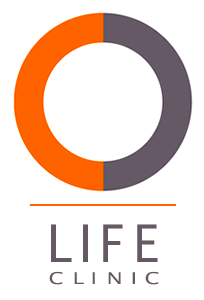Getting pregnant at 40

The ageing equation
Recent trends, reveal that more and more of us are delaying starting families until our mid to late 30s and even until our early 40s as we go about pursuing our career paths, or delay, due to the rising costs of bringing up a family. For many women, it is an informed choice to do so, and one that is made more easily particularly due to the advancements in assisted reproduction technologies (ART) that can be considered a ‘fall-back’ option. For example, some women are now preserving their fertility in anticipation of their own age-related fertility decline and possibly ineffective fertility treatments at older ages using social egg freezing.
Since the 1990s, birth rates in people aged 40-44 have gone up. Now more than ever, we are delaying past the point where our fecundity has started to decline, and age-related infertility issues have indeed become real.

Fertility demographic
According to the American Congress of Obsetricans and Gynaecologists, women’s peak reproductive years are between the late teens and late 20s. The age at which our fecundity starts to reduce hasn’t yet been pin-pointed, but is generally considered to be around the age of 30 years.
The probability of conception falls more rapidly once you reach your mid-30s and it is at this point when it is considered clinically relevant as regards to assisted reproduction. By 45 years, fertility has declined so much that getting pregnant naturally is unlikely. Of course, this is a generalisation and there are always a few cases of menopausal babies to beat this trend.
The end of menopause tends to occur during the mid-50s, but natural population data indicate that fecundity usually ends at around 39-41 years at which point the probability of ovulating, conceiving, and having a normal child are compromised. The gap between fecundity and menopause is determined to be about 8-10 years.
Egg quality and ovarian reserve

This downward trend in fertility with age is due to a decline in the quantity, quality and ability of our eggs to interact with the hormones that control their development and ovulation reduces. Simply put, our ovarian reserve diminishes as we age.
At birth women have between 1-2 million eggs and this number declined to 300,000 by the onset of puberty. Of these, only about 400 will ovulate over their reproductive lifespan.
Chance of getting pregnant naturally
Women in their 20s-30s have about 25% chance of getting pregnant per menstrual cycle. By the age of 40, if healthy, this number has fallen to 5% and by 45 years just 1%.
At the same time, the likelihood of miscarriage climbs with age. A typical 40-year-old has about a 40% chance of losing the pregnancy. That compares to less than 15% for someone in their 20s.
Let’s just clarify here… most women are still fertile and able to get pregnant naturally at age 35, but research shows that egg quantity and quality start to go down “more noticeably” around this age.
Also don’t forget that age isn’t the only factor affecting fertility. There are many other things that can cause fertility problems, not just age. This includes, for example, conditions that affect the health of our reproductive system such as polycystic ovary syndrome and endometriosis.
When do I need help for infertility?
If you have not been able to conceive despite having regular unprotected sex for a year, it is a good idea to get yourself and your partner checked out for any possible medical problems.
For many women over the age of 40, who have not conceived naturally, their best chance of conceiving may be in assisted reproductive technologies (ART). There are a variety of ART treatment strategies specifically for women of advanced maternal age. These include:
- Preimplantation genetic testing for aneuploidy (PGT-A);
- ART using cryopreserved oocytes (social egg freezing);
- ART using donated oocytes (donor ART) and
- standard ART treatment
At Life Clinic we specialize in dealing with age-related infertility. To book an initial consultation where you can discuss all your concerns please contact us on telephone: +30 210 6450 111 or drop us an email at: info@lifeclinic.gr.
KEYWORDS: delayed childbearing, ageing, fecundity, fertility, infertility, social egg freezing, fertility preservation, age-related infertility





